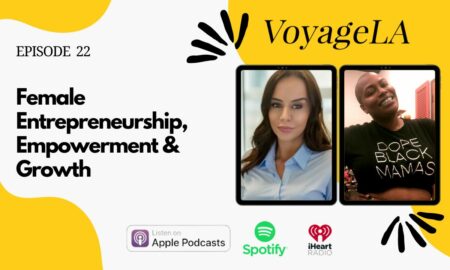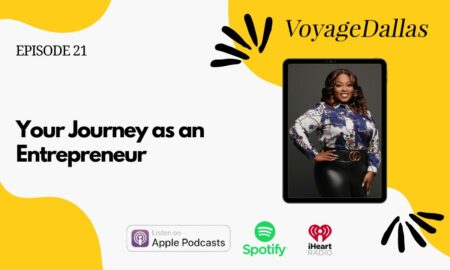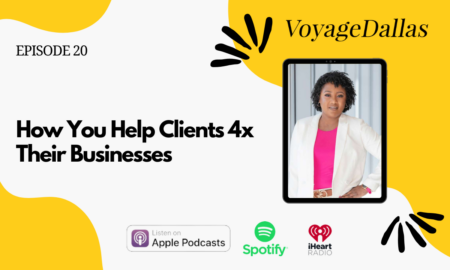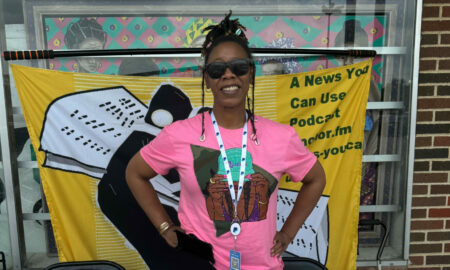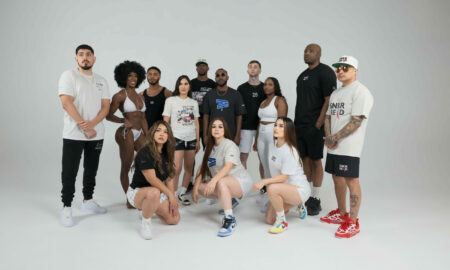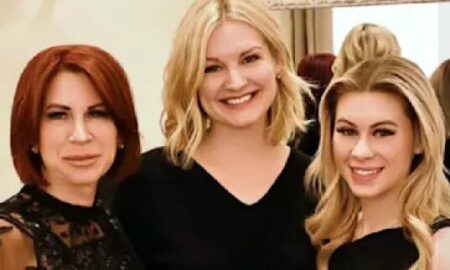

Today we’d like to introduce you to Annie Roberson.
Annie, can you briefly walk us through your story – how you started and how you got to where you are today.
As a child growing up in Nashville, TN during the advent of the internet, you could usually find me sitting at some keyboard – either at a piano or on a computer. In high school, I was equally dedicated to practicing my trumpet and working at my part-time job, managing the online presence of a local catering company. When it came time to choose a major at the University of Alabama, I went with my gut and chose to study music therapy. I wasn’t quite ready to pack the computer away though. So I opened my own business and expanded my services to offer web design in addition to social media marketing to small businesses while in school. I’ve been so fortunate to have wonderful mentors throughout college and into my professional life who saw the value in both music therapy and digital marketing, encouraging me to find a place where the two worlds combine.
Music therapy and digital marketing don’t seem to have much overlap on the surface. If you look a little closer, however, you’ll find that music therapists work tirelessly to advocate for their clients and the incredible impact that music has on their lives. What better way spread the word about the evidence-based practice of changing lives through music than through the internet?
Overall, has it been relatively smooth? If not, what were some of the struggles along the way?
The COVID-19 outbreak has presented a unique set of challenges to small businesses everywhere and particularly highlights the importance of technological literacy and a strong online presence for music therapists. I work as a board-certified music therapist (MT-BC) at Heart and Harmony Music Therapy, LLC, a private practice based in Fort Worth that serves between 150 and 200 clients each week in facilities and homes from Dallas to Weatherford and everywhere in between. Our in-person music therapy services were canceled halfway through March due to COVID-19, leaving our clients without access to therapy and our therapists without income.
Once our in-person sessions were canceled, we immediately got to work setting our nine MT-BCs up with teletherapy systems to continue providing vital services to our clients and created an online course to provide other music therapists with the same digital tools. Heart and Harmony have started telemusictherapy services with new clients looking for at-home access to services since the outbreak started, which is just incredible.
Other than working out the logistics of providing life-enhancing therapy services during an international pandemic, I think the most difficult part of being a music therapist is advocacy – few people know what we do! Just to set the record straight, here’s my short elevator pitch:
Music therapy is the evidence-based use of music to affect change in cognition, motor skills, emotional skills, communication, and social skills. A music therapist might facilitate drumming to extend motor range, direct an inclusive choir to foster empowerment and socialization or lead a lyric analysis of a Taylor Swift song to identify positive coping skills. Every music therapy session looks different and is tailored to the unique strengths and needs of clients. There are currently over 8000 board-certified music therapists working in schools, hospitals, psychiatric facilities, detention centers, and private practices like Heart and Harmony all across the country.
Heart and Harmony Music Therapy – what should we know? What do you guys do best? What sets you apart from the competition?
Small business owners wear so many different hats as entrepreneurs, service providers, customer service reps, and the list goes on and on. Music therapists are constantly working on expanding the field of music therapy and so we wear that additional advocacy hat at all times. Sometimes, there’s not enough room for a digital marketing hat in the closet. As we talked about earlier, a big challenge for music therapists is educating the public about what we do. When music therapists realize it’s time to bring in someone to wear the digital marketing hat for their company, it can be difficult to find someone who knows what music therapy is, much less knows how to advertise it. As a music therapist and a digital marketer, I bridge that gap and make it easy for music therapists to build their online presence – no extra education about music therapy itself required.
What is “success” or “successful” for you?
I set measurable objectives to track progress in both therapeutic goals and business goals in my two worlds of work, but I don’t think success can be objectively measured in its broadest, truest sense. Instead, I might use more subjective reflections like these to evaluate success:
“Am I nurturing and honoring my most authentic self?”
“Am I open and generous with my immediate community and with my community at large?”
“Am I doing my part to make a positive impact on this world?”
These measures of success can apply to everything I do, from work to play to taking time for myself. A day where I don’t meet these goals isn’t an unsuccessful day – it’s just discovering a map to find more success tomorrow.
Contact Info:
- Website: annieroberson.com
- Phone: (682) 710-3802
- Email: hello@annieroberson.com
- Instagram: http://instagram.com/annierobersonva
- Facebook: https://www.facebook.com/annierobersonva/
- Other: heartandharmony.com






Image Credit:
Christina Childress Photography, Mary Kathryn Carpenter
Suggest a story: VoyageDallas is built on recommendations from the community; it’s how we uncover hidden gems, so if you or someone you know deserves recognition please let us know here.












